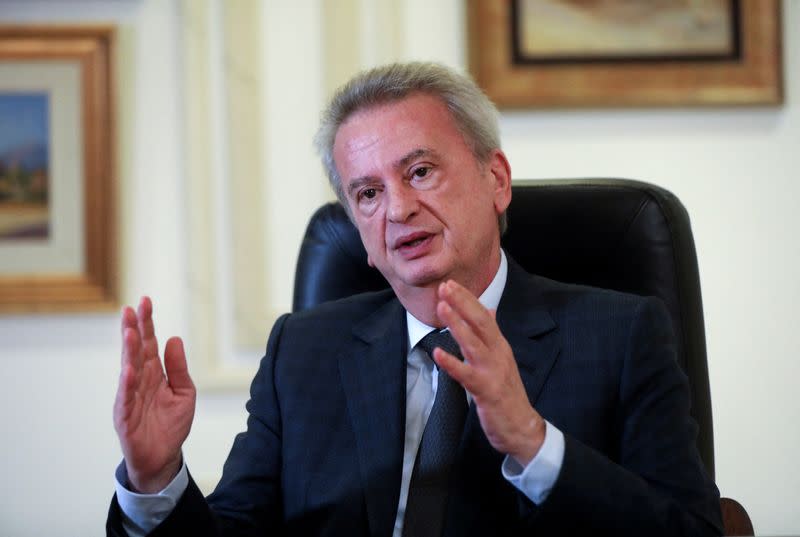Germany issues arrest warrant for Lebanon's central bank chief - sources

By Laila Bassam and Timour Azhari
BEIRUT (Reuters) -Germany has informed Lebanon it has issued an arrest warrant for Central Bank Governor Riad Salameh on corruption charges, including forgery, money laundering and embezzlement, a senior judicial source told Reuters on Tuesday.
A second source familiar with the matter confirmed the arrest warrant to Reuters. Salameh has denied any wrongdoing.
Salameh, 72, is being investigated in Lebanon and at least five European countries for allegedly taking hundreds of millions of dollars from Lebanon's central bank to the detriment of the Lebanese state and laundering the funds abroad.
It is the second foreign arrest warrant reported to be issued for Salameh within a week. France issued a warrant for his arrest on May 16 after he failed to show up for a Paris court hearing.
On France's request, Interpol issued a Red Notice for Salameh, citing charges of money laundering, fraud and participation in a criminal association with a view to committing offences punishable by 10 years of imprisonment.
Salameh said he would challenge the French arrest warrant.
He was previously charged with corruption in two separate cases in Lebanon, which include formal accusations of embezzlement, money laundering and fraud.
He has denied those charges and said they are politically motivated.
No one at the German federal prosecution was immediately available to comment.
The Munich public prosecutor’s office said it was involved in the case but declined to comment on the arrest warrant. "We never comment on arrest warrants," a spokesperson for the office told Reuters.
Salameh, who has been central bank governor for 30 years, is facing growing calls to resign ahead of his latest term ending in July, though Lebanon's caretaker Cabinet took no decision on the matter during a Monday meeting that discussed his case.
(Reporting by Laila Bassam in Beirut; Madeline Chambers, Rachel More and Riham Alkousaa in Germany; and Timour Azhari in Baghdad; Writing by Ahmed Elimam and Maya Gebeily; Editing by Christina Fincher)

 Yahoo News
Yahoo News 
